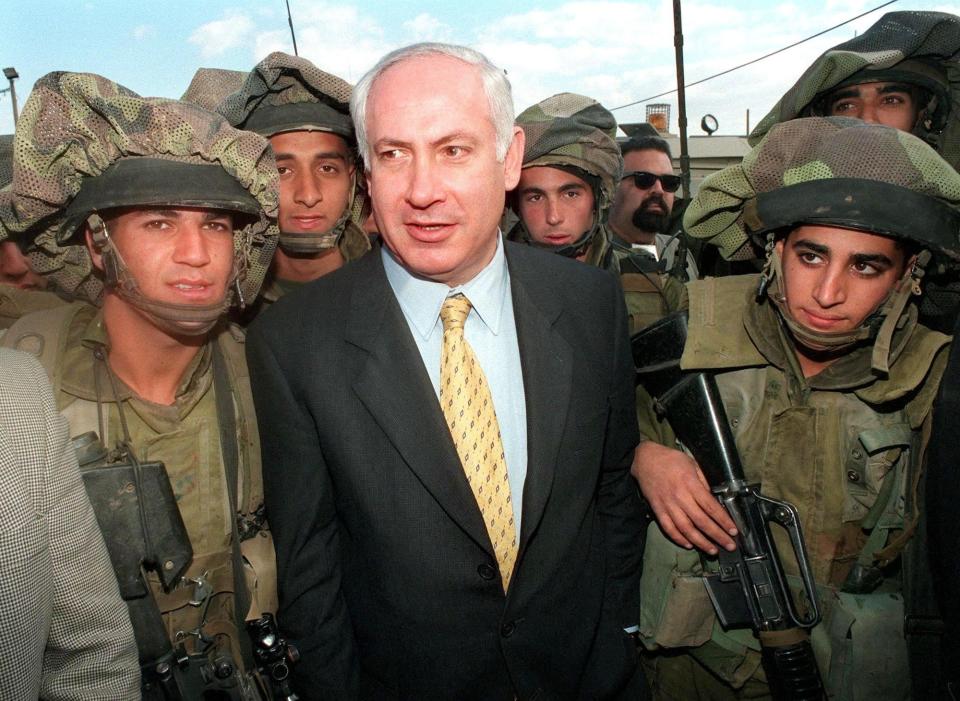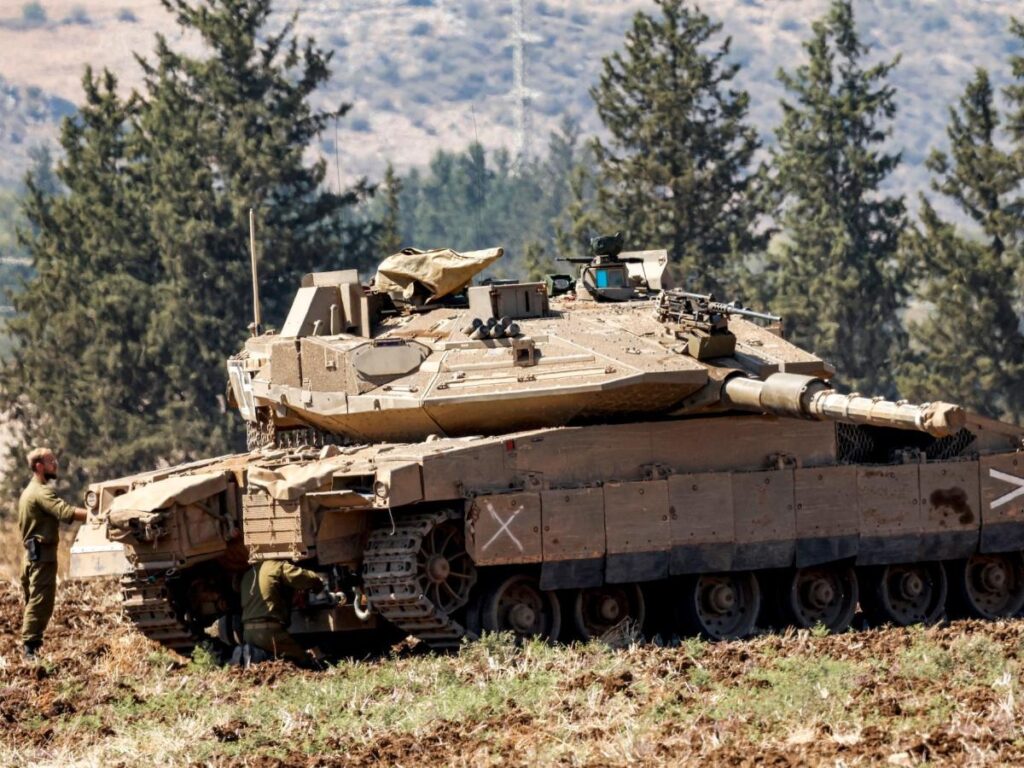-
Israel launched a ground incursion that risks repeating its past mistakes in Lebanon.
-
Israel’s fifteen-year occupation of the border with Lebanon ended as a quagmire, comparable to America’s Vietnam.
-
Israel has recently achieved stunning victories against Hezbollah, but its new operation is risky.
As Israel begins what it describes as a limited ground operation to destroy Hezbollah’s presence and artillery in southern Lebanon, critics warn that Israel risks repeating the disasters that dogged its previous campaigns in Lebanon.
The question centers on the extent to which Israel has learned lessons from past mistakes, and how well it can apply those lessons against Hezbollah, a capable and well-armed paramilitary that enjoys the advantage of fighting on its own territory. As before, Israel risks ending up in a bloody quagmire that it cannot win.
The ghosts of history are always stalking the Middle East, no less in the picturesque hills and valleys along the Israel-Lebanon border. From 1985 to 2000, Israel occupied an area 15 miles wide “safety zone” in southern Lebanon, ostensibly led by a Lebanese Christian faction, backed by IDF forces. The zone began as a buffer to prevent Palestinian groups in Lebanon from attacking border communities in northern Israel. It ended up as a quagmire that led to the rise of Hezbollah, a steady stream of killed and wounded soldiers in victim-prone Israel, and the frustration of a long, grinding guerrilla war full of ambushes and roadside bombs. Lebanon became for the Israelis what Vietnam and Afghanistan were for the US and the Soviet Union.
Israel evacuated – or withdrew under fire – out of the security zone in 2000. Israel returned in 2006, when 30,000 Israeli troops crossed the border in retaliation for a Hezbollah ambush of IDF forces in northern Israel. The 34-day war between Israel and Lebanon in 2006 was perhaps the nadir of Israeli military performance (at least until Hamas’s surprise attack from Gaza on October 7, 2023). Israel’s overconfidence that air power alone could defeat Hamas, followed by a clumsy and ill-prepared ground campaign, ended in a draw allowing Hezbollah to claim victory by mere survival.


This history may have lulled Hezbollah – as well as the rest of the world – into believing that Israel would never dare invade Lebanon, and that it would get a bloody nose if it did. But this is not the first time that Israel has confounded its critics and delivered a stunning surprise. Remarkably accurate intelligence, superbly planned covert operations such as exploding beepersand well-timed air strikes have failed Hezbollah’s top and mid-level leadersas well as some of the group’s estimated 150,000 missiles.
However, these operations play to Israel’s strengths in high-tech versus Hezbollah, whose mastery of the technology appears closer to the 1980s. Boots on the ground are another matter. Hezbollah seizes the opportunity to engage in a ground war full of ambushes and IEDs that nullify Israeli technology. Israeli officials would probably prefer to avoid a ground campaign. But in the past year, 80,000 Israelis have had to evacuate northern Israel, partly because Hezbollah fighters can shoot at the border. anti-tank missiles directly to Israeli homes. Under pressure to do something, the government led by Prime Minister Benjamin Netanyahu has authorized a ground invasion to clear Hezbollah from the border and reassure Israelis they can return home.
In some ways, Israeli forces will face a familiar battlefield. Hilly terrain which is not ideal for armored vehicle movements, and is littered with villages whose mainly Shia residents tend to support Hezbollah (and in some cases are part-time Hezbollah fighters). Hezbollah has had decades to fortify the area, especially with an extensive network of tunnels similar to what Hamas has used to great effect in Gaza. Well-trained Hezbollah fighters, equipped with Russian and Iranian-made weapons anti-tank missilescan emerge from hidden tunnel entrances and fire a missile, forcing the IDF into a chubby war. Although the decimation of Hezbollah’s leadership will hamper its effectiveness for the foreseeable future, its members are trained to operate independently.
The IDF releases images showing the 36th Division entering Lebanon. Currently, two IDF divisions are operating in southern Lebanon to dismantle Hezbollah infrastructure there. pic.twitter.com/2S0qw1pBaJ
— Emanuel (Mannie) Fabian (@manniefabian) October 2, 2024
On the other hand, Israel appears to have learned lessons from its past failures. Instead of tanks charging across the border and ambushing Hezbollah, the IDF sent in commando teams to scout the terrain and destroy weapons and fortifications to prepare the ground before the tanks and infantry invade. This approach still has its dangers. On Wednesday, eight IDF soldiers were killed in southern Lebanon, a toll that includes six troops from the elite Egoz Commando unit.
An intriguing question is the depth of Israeli intelligence on Hezbollah’s forces and infrastructure in southern Lebanon. Hezbollah leader Hassan Nasrallah took extensive precautions to keep his whereabouts secret, but after two decades of painstaking intelligence gathering, Israel managed to pinpoint Nasrallah’s location and kill him with an airstrike. Such deep penetration into Hezbollah’s deepest secrets suggests that Israel may also have acquired solid intelligence about Hezbollah’s presence on the border.
Yet these are tactical considerations. The dilemma for Israel is of strategic importance. If the country conducts a short campaign to cripple Hezbollah’s presence on the Israeli border, the moment the IDF leaves is the moment Hezbollah will return to fire on Israeli cities – a dilemma it has also seen in Gaza, where Hamas militants have returned to areas vacated by Israel. Israeli soldiers. If Israel creates another security zone, it will be Israeli soldiers who will be singled out instead of Israeli civilians. And above those hills hover the ghosts of 40 years ago, when what was intended as a short campaign turned into a 15-year occupation that left more than 250 soldiers dead and Israeli society shattered.
It is entirely possible that a ceasefire will be reached, most likely resulting in an uneasy calm punctuated by bouts of violence. It is also possible that a short war turns into a long nightmare. Faced with an implacable opponent, Israel may ultimately feel it has no choice.
Michael Peck is a defense writer whose work has appeared in Forbes, Defense News, Foreign Policy magazine and other publications. He has an MA in Political Science from Rutgers Univ. Follow him further Tweet And LinkedIn.
Read the original article Business insider







